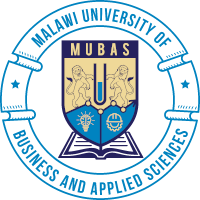Polytechnic exhibits at AU Summit
The Summit which was done under the theme ‘Enhancing Education, Science, Technology and Innovation of Africa’s Development, was held at the Bingu International Convention Centre on 3rd and 4th November, in Lilongwe, Malawi.
The purpose of the first ever Extra-Ordinary Summit was to agree on a framework for achieving Agenda 20163 through enhanced investment and strategic multi sectorial private and public sector partnerships in the development of Education, Training and Research.
During this summit, local and international institutions, organizations and development partners were provided with an exhibition platform to show case their innovations.
According to the leader of the delegation from The Polytechnic, Dr Rabson Mgawi, these are some of the projects which were showcased.
The Baby-Lights Phototherapy; is a low cost device for curing jaundice in new born babies. It produces blue light that helps the baby's body to breakdown and clear jaundice in a few days. The device currently runs on utility power and it has a power consumption of only 12 Watts. It was designed at the University of Malawi – The Polytechnic through a collaboration and technology transfer from Rice University. The project was funded by the African Network for Drugs and Innovation (ANDI).
From the Mining and Engineering Department, they exhibited rock and mineral samples, Mirror Stereoscope, X-ray Fluorescence (XRF) and Gamma Ray Spectrometer which help enhance teaching and learning.
“Rocks and mineral samples provide the students with an opportunity to interact with real life geological materials in a classroom setting. Rock and mineral samples are particularly important during mineral identification where students examine the properties of various minerals. Thus, the use of rock and mineral samples during teaching, help remove all the misconceptions that students might have thereby promoting learning,” he explained.
Other projects which were showcased were;
Solar Impact and Technology Readiness in Chikwawa, Water Sustainable Point Of Use Treatment Technologies for rural areas, impact of combined WASH and food hygiene intervention on diarrhea reduction among under-five children, foot operated hand wash machine, Cotton Delinter and the PA system which was showcased by the Journalism Department portraying the Gaka Community Radio led by Peter Mitunda.
